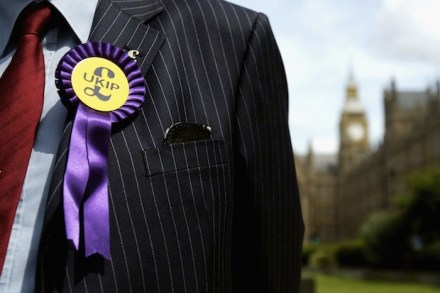The Ukip effect: live local election results
Ukip is celebrating after winning council seats from all three main parties across the country. Nigel Farage’s party has already exceeded its target of 80 gains in the local elections. On a night of upsets, Labour took control of Tory flagship council Hammersmith and Fulham and the Conservatives took Kingston-upon-Thames. But Labour also failed to make gains in key target marginals such as Thurrock, Tamworth and Swindon, and the party’s performance has been weaker than expected. Labour Conservative Lib Dem Ukip Councils 80 (+5) 40 (-12) 6 (-1) 0 Seats 2047 (+330) 1333 (-173) 409 (-244) 163 (+128) Barnet – Conservative hold Milton Keynes – No overall control (same) Havering – No overall




















